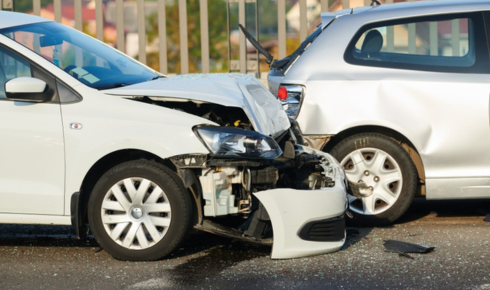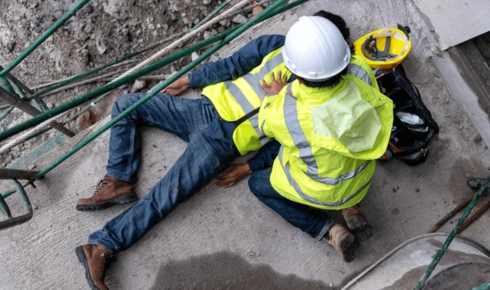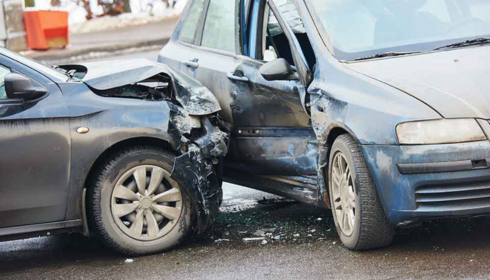Rear-end accidents are among the most common types of car crashes in Carmel, Indiana. Many people dismiss them as minor fender benders, but even low-speed collisions can result in painful injuries, costly vehicle repairs, and drawn-out disputes with insurance companies. Knowing what to do after a rear-end accident is essential for protecting your health and your legal rights.
Prioritize Safety First
The moments immediately after a crash can be chaotic, but your priority must be safety. If anyone appears to be injured, call 911 immediately so that emergency responders can arrive on the scene. Even if injuries do not seem serious, it is better to err on the side of caution. If your car is blocking traffic and it is safe to move, pull over to the side of the road. Turn on your hazard lights to alert other drivers. In some cases, moving the vehicles is not possible, especially if they are heavily damaged. In that situation, remain inside your car with your seatbelt fastened until help arrives.
Contact the Police
Indiana law requires drivers to report accidents involving injuries, deaths, or significant property damage. In Carmel, this means contacting the Carmel Police Department. Having an officer on scene ensures that the accident is properly documented. The police report will include details such as the names of the drivers involved, witness statements, and preliminary assessments of fault, all of which become important in insurance and legal proceedings.
Exchange Information With the Other Driver
Once everyone is safe and authorities are on the way, exchange information with the other driver. This should include their full name, phone number, driver’s license number, license plate, and insurance details. Be polite and calm, but avoid discussing fault at the scene. Statements like “I’m sorry” may later be misinterpreted as an admission of liability.
Document the Scene Thoroughly
In addition to the police report, it is essential to collect your own evidence. Use your phone to take photographs of the damage to both vehicles, any skid marks on the road, weather conditions, and the traffic signs or lights nearby. Wide-angle shots of the intersection or roadway can provide essential context, while close-up images of dents or broken glass show the extent of the damage. If there are bystanders who witnessed the crash, also ask for their contact information.
Seek Medical Care Quickly
Rear-end collisions often cause injuries that may not be apparent immediately. Whiplash, concussions, and back injuries may take hours or even days to develop. This is why seeking medical attention immediately after the accident is crucial. A doctor can perform tests, order imaging if necessary, and document your condition. This medical documentation is not only critical for your recovery but also for any legal claims you may file. Insurance companies often argue that if you did not see a doctor right away, your injuries must not be serious. By getting evaluated promptly, you protect both your health and your right to fair compensation.
Understanding Fault in Indiana Rear-End Crashes
Indiana is a fault-based insurance state, meaning the driver who causes an accident is financially responsible for the damages they cause. In most rear-end collisions, the rear driver is presumed to be at fault for failing to maintain a safe following distance. However, there are exceptions. If the front driver slammed on their brakes unexpectedly, had broken brake lights, or swerved suddenly, they may share in the responsibility. Indiana also follows a modified comparative fault system. Under this rule, you can recover damages as long as you are less than 51% at fault. Your compensation, however, will be reduced by your percentage of fault. For example, if you are found 10% responsible for contributing to the crash, your settlement will be reduced by 10%.
Dealing With Insurance Companies
Shortly after the crash, you may receive a call from an insurance adjuster. They may sound sympathetic, but their job is to protect the insurance company’s bottom line. Adjusters often try to settle cases quickly for less than they are worth, or they may downplay your injuries as “soft tissue damage” that does not require much compensation. It is best to avoid giving recorded statements or signing any documents until you have spoken to an attorney. Insurance companies will use your words against you if they can.
How a Carmel Auto Accident Lawyer Can Help
Many people assume they can handle rear-end accident claims on their own, but hiring a Carmel auto accident lawyer often makes a significant difference. An attorney can investigate the accident, collect medical records, interview witnesses, and work with experts to reconstruct the crash if necessary. They will also calculate the actual value of your claim, including medical expenses, lost wages, future medical care, and pain and suffering. If the insurance company refuses to offer a fair settlement, your lawyer can file a lawsuit and represent you in court. Having professional representation levels the playing field against powerful insurance companies.
Frequently Asked Questions
What if the other driver does not have insurance? If the at-fault driver is uninsured, you may still be covered under your own uninsured motorist policy. If you do not have that coverage, you may need to file a lawsuit directly against the driver.
Should I see a doctor if I feel fine? Yes. Many accident-related injuries are not immediately apparent. Delaying medical treatment can hurt your health and weaken your legal claim.
Is the rear driver always at fault? Not always. While the rear driver is usually presumed responsible, the front driver can also be found at fault under certain circumstances, such as sudden braking or broken brake lights.
How long do I have to file a claim in Indiana? The statute of limitations for personal injury claims in Indiana is two years from the date of the accident.
Will my insurance premiums increase even if I was not at fault? Generally, your rates should not increase if you were not at fault, although policies vary by insurance company.
Conclusion
Being rear-ended in Carmel can be a stressful and overwhelming experience. From dealing with injuries to facing pushback from insurance companies, the process can take a toll on your health and finances. By following the proper steps—seeking medical care, documenting the accident, and consulting with an experienced Carmel auto accident attorney—you can protect yourself and maximize your chances of receiving fair compensation.




